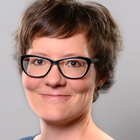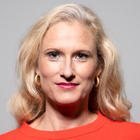The Current Column
The role of development policy in European refugee policy
Hackenesch, Christine / Julia LeiningerThe Current Column (2015)
German Development Institute / Deutsches Institut für Entwicklungspolitik (DIE) (The Current Column of 5 May 2014)
Bonn, 5 May 2015. What can and should Europe do in response to increasing numbers of refugees, thousands of whom are dying in the Mediterranean? German Development Minister Gerd Müller is calling for an additional 10 billion Euro to tackle the issues causing people to flee their countries of origin. By contrast, in his article 'No aid funding for corrupt kleptocrats', published at ZEIT Online, Theo Sommer argues that providing additional development aid would do little to solve the refugee crisis, as it would most likely fall into the hands of corrupt politicians in developing countries.
Addressing the factors causing people to flee their countries, particularly in nations with corrupt governments
Following Theo Sommer's line of reasoning, refugee policy would be strictly limited to border patrols and maritime rescue operations. However, this is unlikely to reduce refugee numbers in the short and medium term. Europe's reputation would also be severely damaged if its only response to the refugee crisis was to increase funding for Operation Triton.
There is no alternative to mitigating the factors causing individuals within African societies to flee their countries. But will this mean more money for corrupt governments? Sommer's criticism bypasses the realities of development policy while falling into the trap of putting all the blame in one place. It is not possible to attribute every development issue to failed development policy and corruption.
And by no means is every euro disappearing into the pockets of corrupt kleptocrats. Rather, fighting corruption is also a development policy task. European tax money is being used to develop audit institutions and help non-governmental organisations to run anti-corruption campaigns. While the results are admittedly mixed, there is nothing to advocate leaving corrupt activities unchecked.
At the same time, the scope for development policy action should not be overestimated. For this reason, calls for more funding must also go hand in hand with a clear strategy for where and how this money can help to improve the living conditions of 1.1 billion Africans.
Recognising differences
The factors causing people from Syria, Eritrea, Somalia, Nigeria, Mali and Senegal to flee to Europe vary greatly. This means that the policy measures for tackling these issues need to be tailored to the political and economic situation of each individual society. There are cases in which development policy can and should play an even greater role and others in which it can and should not.
Syria and Iraq are in the grip of civil war. Eritrea is one of the world's most repressive dictatorships. State structures are virtually non-existent in Somalia. While Nigeria is still the largest economic power in Africa, the government has come under tremendous pressure from Boko Haram in the north of the country. Senegal is now a middle-income country that is relatively open from a political perspective. Contrary to the chaotic picture painted by Sommer, there are state structures in place in the south of Mali, where 94% of the population lives.
Countries such as Senegal and Mali are meeting the basic requirements for effective development policy, with their political elite prepared to address issues of economic and social development. Advising ministries on how to improve basic services and expanding and connecting local markets can make a difference to the economic future of these countries.
In the case of Eritrea and Somalia, things are more difficult. Eritrea has been internationally isolated for years and is barely receiving any development aid at present. Cooperation with the country's civil society is the most viable option in this context, even if it can only play a tiny role in making the nation more open. While scope for development policy activity in Somalia and Somaliland is undoubtedly extremely limited, leaving these countries to their own devices or focusing solely on fighting piracy is not an option.
Structural reform policy is nothing to be feared
Reforming state structures in African countries is the only way to mitigate the factors causing people to flee these nations. Without a properly functioning and well governed state, it is impossible to create jobs and attract investment. This is why it is also necessary to involve the business sector, as advocated by German Development Minister Müller. However, the short-term infrastructure measures and training investments being called for are not enough; what is required is a state that develops its education system and maintains its roads. This is why development policy should also promote structural reform.
Ultimately, development policy cannot deal with the issues causing people to flee their countries on its own. It is especially necessary for development, foreign and domestic policy actors to work together very closely on refugee policy, while also developing their role as providers of security for the people. This is the only way to ensure that greater development policy efforts make a sustainable contribution to refugee policy.


